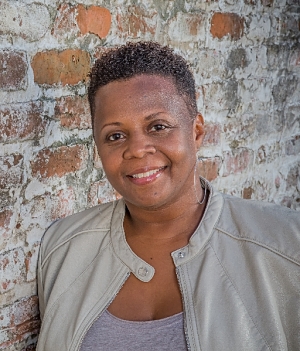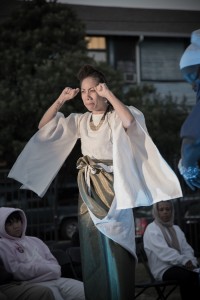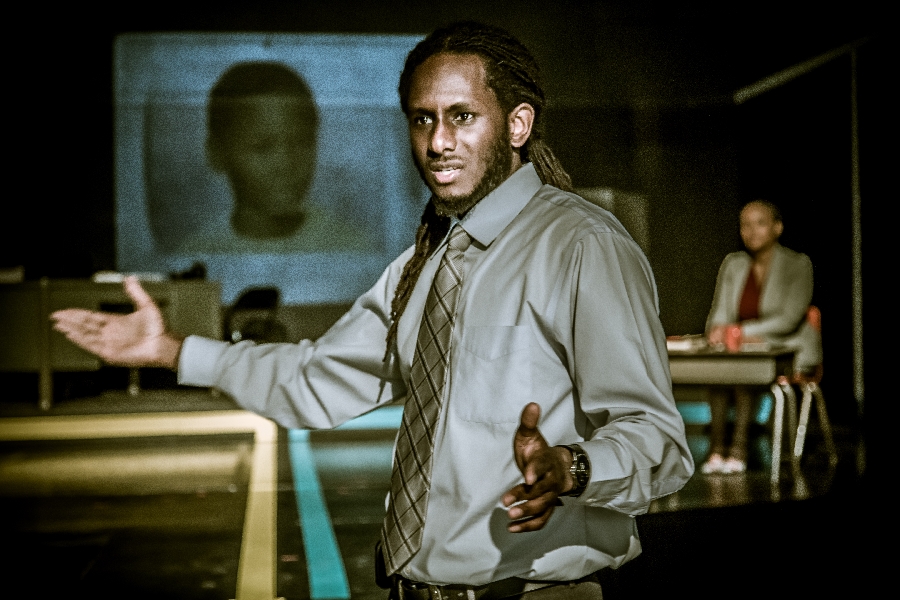NEW ORLEANS: The Big Easy, with its nightlife, live music scene, and incomparable cuisine, might be best known for the thousands of tourists who flock to Bourbon Street each year to celebrate Mardi Gras. But in addition to the annual street party, residents and tourists alike enjoy theatrical entertainment year-round at several local venues.
One of the city’s oldest professional companies, Junebug Productions Inc. (JPI), has been bringing stories of the city’s rich history and current events to the stage and the streets since 1980. We spoke with artistic director Stephanie McKee via email to learn about the theatre’s beginnings and how the company sparks action through art.
Who founded Junebug Productions, when, and why?
Junebug Productions is the organizational successor to the Free Southern Theater (FST). In 1963, John O’Neal and Doris Derby, field secretaries of Student Non-Violent Coordinating Committee (SNCC), cofounded FST with student leader Gilbert Moses to be a cultural wing of the SNCC. FST went on to become a major influence on the Black Arts Movement. In 1965, FST moved its base from Tougaloo College in Jackson, Miss., to New Orleans. It continued to use arts to support the Civil Rights movement through a community engagement program and training opportunities for locals interested in writing, performing, and producing theatre, as well as touring.
In 1980, FST produced Don’t Start Me to Talking or I’ll Tell Everything I Know, the first solo piece written and performed by John O’Neal featuring Junebug Jabbo Jones, a character created by SNCC members to represent and symbolize the wit and wisdom of common folk. That was the last production of the FST and the first production of Junebug Productions. In 1985, “The Funeral of the Free Southern Theater, a Valediction Without Mourning” celebrated the work of FST and started the journey of Junebug Productions.

Tell us about yourself and your connection to Junebug.
My connection to Junebug Productions started in 1992 when I was a community member and participated in Urban Bush Women’s (UBW) first Community Engagement Project (CEP) with Junebug in New Orleans, and again in 1995 as a participant in Junebug’s Environmental Justice Conference. The relationship with Urban Bush Women has since deepened, as we now represent a second generation of organizational partnership with UBW. These proved to be seminal moments, where I witnessed JPI’s commitment to values, community, and social justice flourish—and I still find influence and inspiration today. Junebug and John O’Neal have played a huge role in my personal and professional development. The impact of this relationship can be seen in my commitment to artistic and leadership development opportunities for artists of color. I think I speak for many when I say that the work of JPI and John O’Neal have added to our work and our lives.
What sets your theatre apart from others in your region?
Junebug is rooted in the Civil Rights movement legacy and Africanist Southern culture. We’re also grounded in story and strategic partnerships that help support community action.
Who is your audience?
Our audience has been constantly shifting and changing after Katrina and is reflective of that landscape. However, Junebug continues to produce and present artistic works that question and confront the inequitable conditions that have historically impacted the African-American community.
Tell us about your favorite theatre institution other than your own, and why you admire it.
I am always blown away and inspired by the work of Urban Bush Women and its founder, Jawole Zollar. Although they identify themselves as a dance company, I see their work pushing the boundaries of form and presentation. They are also not afraid of experimentation and are always taking risks in their art and performance.
How do you pick the plays you put on your stage?
In the beginning of our leadership transition, the role of curator was the responsibility of the artistic director. We are now moving to a model that is more inclusive and allows for more conversation from a team that looks at what we want to explore thematically throughout our season.
What’s your annual budget, and how many artists do you employ each season?
Our annual budget this year is $430,000, which is quite a jump from last year, and we employ 25 artists on average each year.

What show are you working on now? Anything else in your season that you’re especially looking forward to?
In our 2016-17 season, Junebug Productions will premiere the original production Gomela/to return: Movement of Our Mother Tongue, funded by a New England Foundation of the Arts National Theater Project grant, and continue our place-based performance series, the Homecoming Project. Junebug Productions will also present Power of the Black Feminine, a multidisciplinary performance featuring the work of four black women artists.
Gomela/to return: Movement of Our Mother Tongue, which has been in development for the past two years, will premiere in January 2017 and will begin touring in April 2017. The production will feature seven artists and the work of four designers. “Gomela,” a Bantu word, means “to go back to/to return.” Featuring award-winning poet Sunni Patterson, Gomela will highlight the vibrant and percussive movements and stories that breathe life into ancient forms (African dance and drumming) and new artistic expression (spoken word, hip-hop, jazz) that illuminate the connection between Africa, Haiti, and New Orleans.
At its core, the show focuses on gentrification, New Orleanians returning after Katrina, Black Lives Matter, and the beauty and resilience of black people, past and present. Similar to the Homecoming Project, the show addresses the threat of New Orleans culture, institutions, and general way of life going by the wayside in the name of progress, development, and rebuilding. Sunni Patterson, the lead artist in the project, was born and raised in New Orleans but was forced to move after Katrina due to rising costs. Her story is representative of the experience of so many New Orleanians. This piece aims to raise the issue of racial inequity in rebuilding, development, and gentrification as New Orleans becomes more and more white and affluent.
Power of the Black Feminine: (re)moved and (re)claimed, will be a curated multidisciplinary performance featuring works by Marguerite Hemmings, Kesha McKey, Rebecca Mwase, and Sunni Patterson, and will premiere in June 2017. The performance residency week will include three nights of performances, post-performance discussions, and an opening night dance party. The performance residency will take place at the Contemporary Arts Center in New Orleans and will be targeted at a multigenerational African-American audience. The project will explore the lived experiences of black women and the conflicts around beauty, self-esteem, and image. The goal is to reclaim the infinite possibilities that lie in the power of women.

What are you doing when you’re not doing theatre?
Taking the time to just be—it restores my mental, physical, and spiritual health, and allows me to meet the demands of each day and give my fullest to whatever else I choose to do.
What does theatre—not just your theatre, but the American or world theatre—look like in, say, 20 years?
We are in an ever-changing landscape where old models will be challenged in their sustainability and connection to community. As this happens, I think we will see more site-responsive, multidisciplinary theatre works that push the boundaries of what theatre is, has been, and can be.


